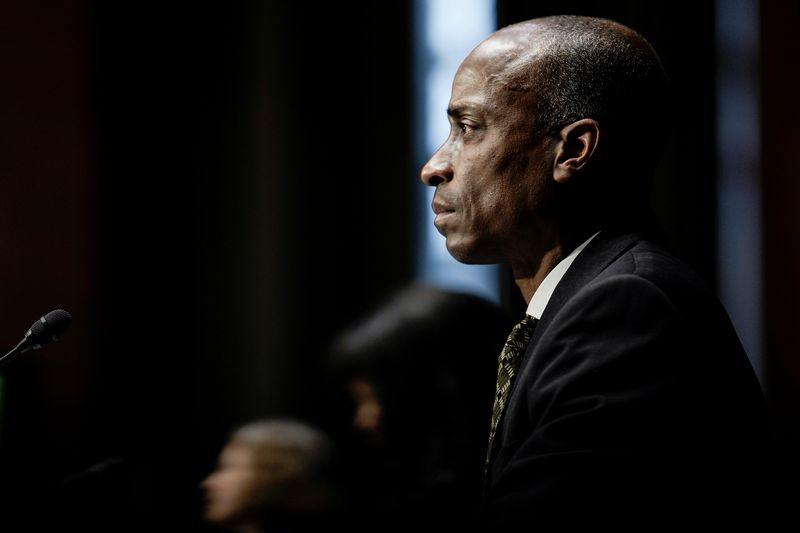
© Reuters. FILE PHOTO: Dr. Philip Nathan Jefferson, of North Carolina, nominated to be a Member of the Board of Governors of the Federal Reserve System, listens during a Senate Banking, Housing and Urban Affairs Committee confirmation hearing on Capitol Hill in Wash
By Howard Schneider
LEXINGTON, Virginia (Reuters) -The shuffling of deposits from small to large banks could have a disproportionate impact on U.S. small businesses that depend heavily on community and regional financial institutions for credit, Federal Reserve Governor Philip Jefferson said on Monday.
“We are focused on the macroeconomy but we are aware … that there are potential distributional aspects,” if depositors move cash away form smaller banks, Jefferson said.
Recent banking sector stress has led to declining deposits at smaller institutions and “we are going to have to see how that plays out,” Jefferson said. “That could have a disproportionate impact on small businesses … We want community and regional banks to be strong.”
Jefferson’s comments show how the recent failure of Silicon Valley Bank and Signature Bank (NASDAQ:SBNY) have complicated what had been a monetary policy debate tightly focused on inflation, and the need to raise interest rates higher to control it.
The sudden stress in the banking sector has raised the possibility of a broader slowdown in credit as banks grow more cautious, particularly smaller institutions seen as possibly more vulnerable to the sort of run that took down SVB.
Data last week from the Fed showed a record outflow of deposits from small and smaller regional U.S. banks in the week after Silicon Valley’s collapse, with deposits among banks outside the 25 largest dropping by nearly $120 billion in the week ended March 15.
While a “credit crunch” could aid the Fed’s fight against inflation but leave less money in the pockets of businesses and households, too sharp or disorderly a contraction could lead to a recession.
However Jefferson also said that inflation “is too high” and that he would like to see it return to the central bank’s 2% target “sooner as opposed to later.”
He did not say whether he thinks further interest rate increases are appopriate or not, but said he hoped inflation could be brought under control “in a way that does not damage the economy any more than is necessary.”
Source: Investing.com



























